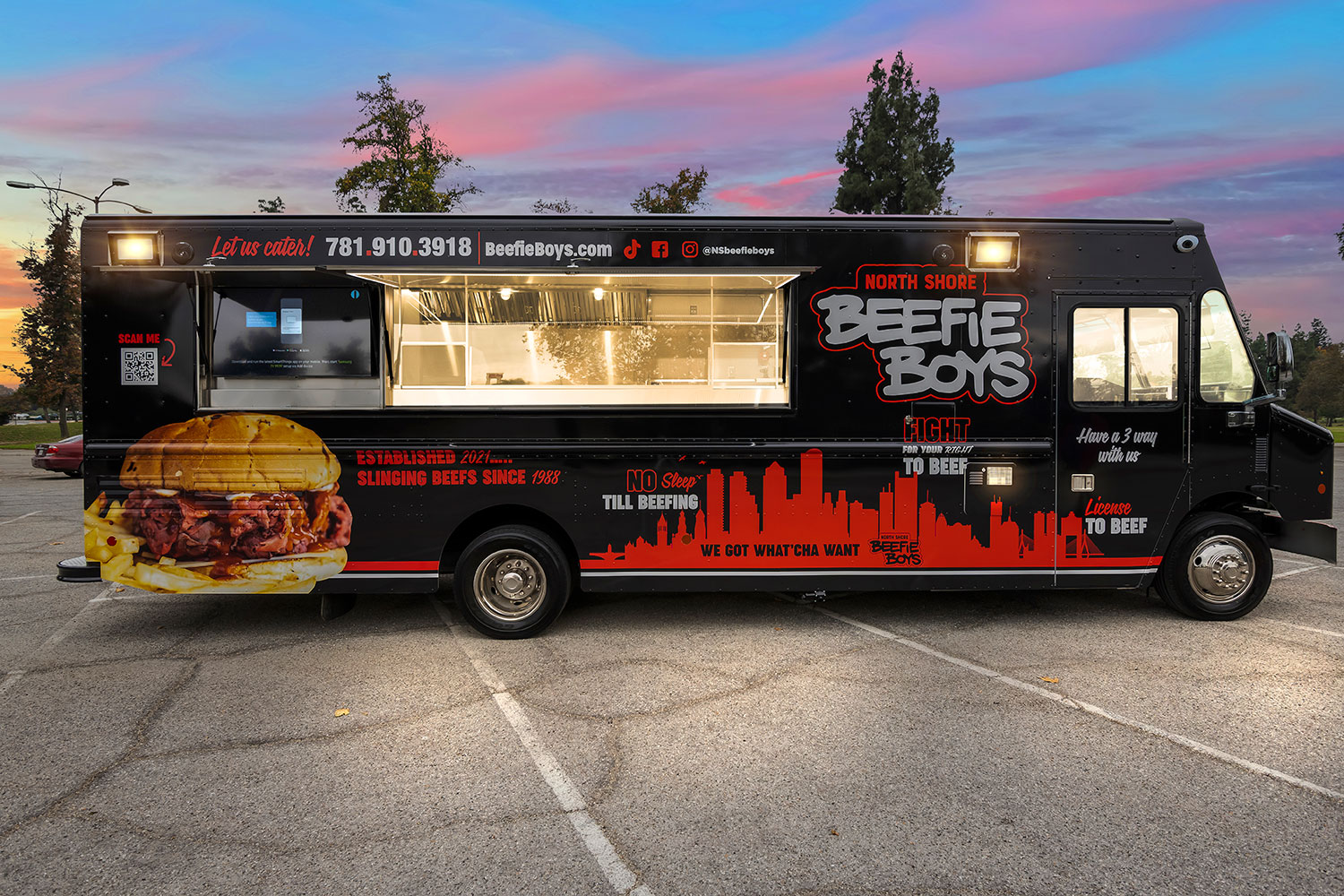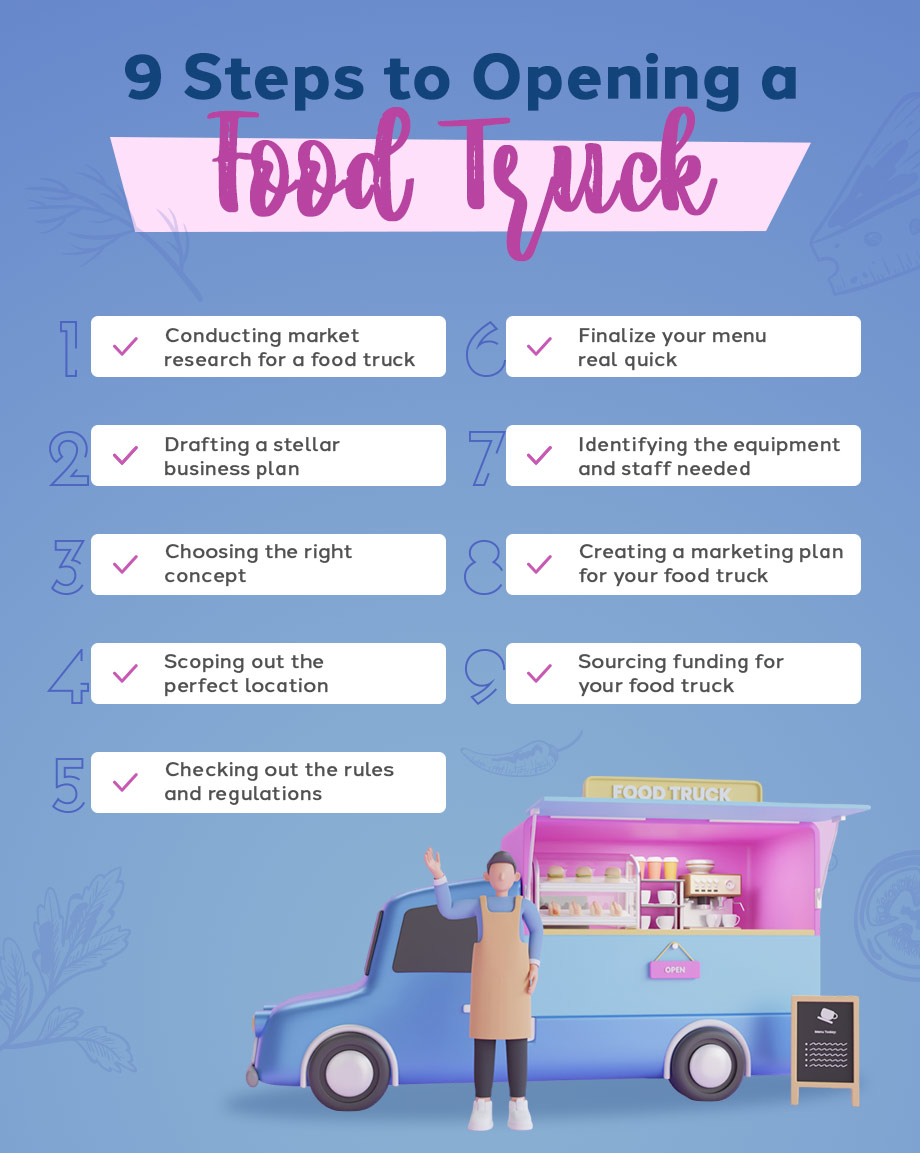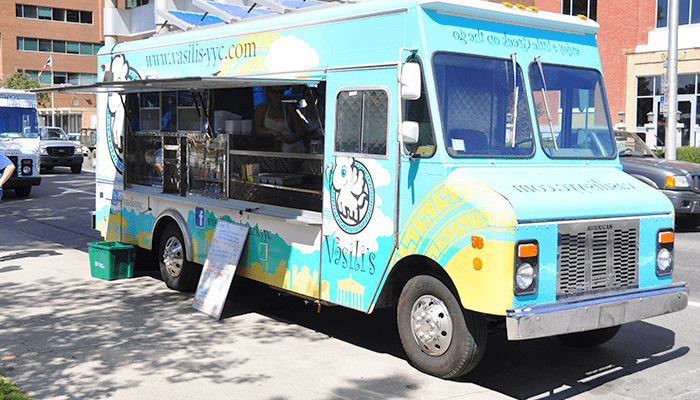Buying a food truck is a big decision. It requires careful planning and research.
Food trucks offer a unique way to start a culinary business. Their mobile nature allows for flexibility and the chance to reach different customers. But before diving into this venture, there are several important factors to consider. Understanding the costs involved, the necessary permits, and the logistics of running a food truck are crucial.
You must know what type of food truck suits your needs and how to design it efficiently. This guide will help you navigate the essentials and make informed decisions. With the right knowledge, you can turn your food truck dream into a successful reality. Let’s explore what you need to know before buying a food truck.

Credit: legionfoodtrucks.com
Initial Planning
Understanding local regulations and permits is crucial before buying a food truck. Research the initial costs, including equipment and licenses.
### Initial Planning Starting a food truck business is an exciting venture. However, without careful initial planning, your dream can quickly turn into a nightmare. Before you hit the road, take some time to plan and prepare.Researching Market Trends
Understanding market trends is crucial. You need to know what people in your area want to eat. Check out local food trucks and see what they offer. Are there gaps in the market? Maybe a unique cuisine could set you apart. Look at social media. What food trends are gaining popularity? Instagram and TikTok can give you insights into what’s hot. You might also talk to potential customers. Ask friends and family what kind of food they would love to see from a food truck.Defining Business Goals
Setting clear business goals will guide your decisions. What do you want to achieve with your food truck? Think about your short-term and long-term goals. Maybe you want to break even within six months or expand to multiple trucks in a few years. Write down your goals. Having them in writing makes them real and keeps you accountable. Ask yourself, how will you measure success? Is it profit, customer satisfaction, or something else? Make sure your goals are specific and measurable. Initial planning might seem overwhelming, but it’s the foundation of your future success. What steps will you take first?
Credit: www.ovvihq.com
Budget Considerations
Buying a food truck involves several financial decisions. It’s not just about the truck itself. You need to budget for permits, equipment, and other expenses. Understanding all costs can help you avoid surprises.
Estimating Costs
First, determine the cost of the truck. New trucks cost more, but they have fewer issues. Used trucks are cheaper but may need repairs. Consider the cost of kitchen equipment. Stoves, refrigerators, and sinks are essential. Don’t forget about maintenance costs. Regular upkeep is necessary to keep your truck running. Finally, factor in the cost of permits and licenses. These vary by location.
Securing Funding
Once you know the costs, think about funding. Many food truck owners take out loans. Banks and credit unions offer business loans. Another option is personal savings. Some people use a mix of loans and savings. Crowdfunding is also an option. Platforms like Kickstarter can help you raise money.
Choosing A Food Truck
Choosing the right food truck is a critical decision. It impacts your business operations and success. You need to consider many factors. These include whether to buy new or used and which features are essential for your needs.
New Vs. Used Trucks
Deciding between a new or used food truck is crucial. New trucks offer the latest technology. They come with warranties and fewer maintenance issues. But, they are more expensive. Used trucks are cheaper and might fit your budget better. They may need more repairs and upgrades. Always inspect a used truck thoroughly. Check the engine, kitchen equipment, and overall condition.
Evaluating Features
Think about the features you need in your food truck. A good layout is key for smooth operations. Ensure there is enough space for cooking and serving. Look at the kitchen equipment. You need reliable appliances that fit your menu. Consider the truck’s size. It should be easy to drive and park. Don’t forget about ventilation and storage space. Proper ventilation keeps the kitchen safe. Ample storage helps you stay organized.
Licensing And Regulations
If you’re thinking about buying a food truck, it’s essential to understand the licensing and regulations involved. Navigating these legal requirements can seem daunting, but they’re crucial for ensuring your business runs smoothly. Let’s break down the key aspects you need to know.
Permits Required
Getting the right permits is your first step. You’ll need a business license to operate legally. Each city or county has different requirements, so check with your local government.
You might also need a vendor permit. This permit allows you to sell food on the streets and in public places. Without it, you risk fines or even having your truck shut down.
Some areas require a parking permit. This lets you park your food truck in designated spots. Make sure you understand where you can and cannot park to avoid any issues.
Health And Safety Standards
Your food truck must meet health and safety standards. Health departments have strict rules to ensure food is safe for consumption. Regular inspections will be part of your routine.
You’ll need to install proper kitchen equipment. This includes sinks, refrigeration, and cooking appliances. Make sure everything meets the local health code.
Food safety training is crucial. Ensure you and your staff know how to handle food properly. This helps prevent contamination and keeps your customers safe.
Licensing and regulations might seem overwhelming, but they are there to protect you and your customers. Have you thought about how you’ll stay updated with the changing rules?
Menu Development
Menu development is the heartbeat of your food truck business. Your menu will draw customers in and keep them coming back. Let’s break down some key points to consider when designing a menu that stands out.
Popular Food Choices
Choosing popular food items is essential. Think about what people love to eat on the go. Tacos, burgers, and gourmet sandwiches are always crowd-pleasers.
When I first started my food truck, I included a classic cheeseburger. It was an instant hit and quickly became a staple. Consider adding a twist to traditional favorites to make them unique.
Also, keep an eye on food trends. Avocado toast and gourmet donuts, for example, had their moments. Staying current can help you attract trend-seeking customers.
Seasonal Offerings
Seasonal offerings can keep your menu fresh and exciting. They also allow you to use ingredients at their peak freshness and cost-effectiveness.
In summer, think of refreshing options like cold salads and fruit-based desserts. In winter, hearty soups and warm beverages can draw in customers looking for comfort food.
Consider what’s available locally. Using seasonal produce not only supports local farmers but also adds a touch of authenticity to your offerings. Have you ever tried a pumpkin spice latte in autumn? It’s a seasonal favorite for a reason.
What seasonal items can you add to your menu? Think about what your customers would love to see and taste throughout the year.
Remember, your menu is a living document. Keep it evolving based on customer feedback and your culinary inspirations. Happy cooking!
Equipment And Supplies
Starting a food truck business requires careful planning and preparation. One key aspect is ensuring you have the right equipment and supplies. These essentials help you serve delicious food efficiently and safely.
Essential Tools
Your food truck must have basic kitchen tools. These include a refrigerator, freezer, and cooking appliances. Stoves, ovens, and grills are necessary for preparing various dishes. Also, ensure you have a sink for cleaning and hygiene purposes.
Consider investing in food processors, mixers, and blenders. These tools save time and effort. Don’t forget about utensils like knives, spatulas, and tongs. They are vital for food preparation and serving.
Proper storage containers help keep ingredients fresh. Use food-grade containers that are durable and easy to clean. Also, have cutting boards, measuring cups, and bowls on hand. These tools make food prep more efficient.
Stocking Ingredients
Stocking your food truck with fresh ingredients is crucial. Purchase high-quality meats, vegetables, and fruits. These items form the base of your menu. Ensure you have a reliable supplier for consistent quality.
Dry goods like flour, sugar, and spices are also essential. These ingredients add flavor and texture to your dishes. Keep your pantry stocked with these basics.
Don’t forget about beverages. Offer a selection of drinks to complement your food. This can include soft drinks, water, and juices. Having a variety of options appeals to a wider audience.
Finally, always monitor your stock levels. Keep track of what you use daily. This helps prevent shortages and ensures you always have fresh ingredients.
Marketing Strategies
Marketing strategies are essential for a food truck’s success. You need to stand out and attract customers. Effective marketing can make your food truck popular. Let’s explore two key areas.
Branding Your Truck
Branding sets your truck apart. Choose a unique name and logo. The design should reflect your food and vibe. Bright colors and clear fonts help. Make your truck easy to spot from a distance. Use your branding on all materials. Menus, napkins, and uniforms should match your truck’s style.
Social Media Promotion
Social media is a powerful tool. Share photos of your food and truck. Post updates on your location and menu. Engage with followers by asking questions. Run contests to increase interaction. Use platforms like Instagram, Facebook, and Twitter. Respond quickly to comments and messages. Keep your posts regular and consistent.
Operational Logistics
When diving into the food truck business, understanding operational logistics is crucial. The daily operations and staffing needs will directly impact your success. Let’s break these down to ensure you’re well-prepared for the road ahead.
Daily Operations
Running a food truck requires meticulous planning. Your daily operations will involve a range of tasks from food prep to customer service.
Ensure your truck is stocked with fresh ingredients every morning. This means regular trips to suppliers and maintaining a tight inventory.
Consider the layout of your truck. Efficient design can save time and reduce stress during busy hours. Do you have enough space for cooking and serving?
Develop a daily checklist. This could include cleaning routines, equipment checks, and menu updates. It helps keep everything organized and running smoothly.
Staffing Needs
Having the right team is essential. Think about how many staff members you’ll need to handle peak times.
Will you require specialized roles? A cook, a cashier, and someone for customer service might be necessary.
Training is key. Make sure your staff knows the menu inside out and can handle the pressure of a busy shift.
Consider hiring part-time or seasonal workers. It allows flexibility without committing to full-time salaries during slow periods.
Remember, the success of your food truck often hinges on how well you manage these operational logistics. Are you ready to take on the challenge?

Credit: www.sunbeltnetwork.com
Frequently Asked Questions
What Is The Main Reason Food Trucks Fail?
The main reason food trucks fail is poor location choice. Without sufficient foot traffic, sales suffer and businesses struggle.
Is Buying A Food Truck A Good Investment?
Yes, buying a food truck can be a good investment. It offers low startup costs, flexibility, and high-profit potential. Success depends on location, concept, and marketing.
How Much Is Food Truck Insurance Monthly?
Food truck insurance typically costs between $75 and $150 per month. Rates vary based on coverage and location.
How Profitable Is A Food Truck?
A food truck can be very profitable. Profits depend on location, menu, and management. Successful trucks can earn over $100,000 annually.
Conclusion
Buying a food truck is a big decision. Consider your budget and needs carefully. Research thoroughly to understand the market. Choose reliable suppliers for equipment. Plan your menu wisely. Think about necessary permits and licenses. Evaluate potential locations for your truck.
Understand the importance of marketing. Consult with experienced food truck owners. Stay informed about industry trends. With the right preparation, your food truck can thrive. Take these steps seriously for a successful venture. Happy food trucking!

